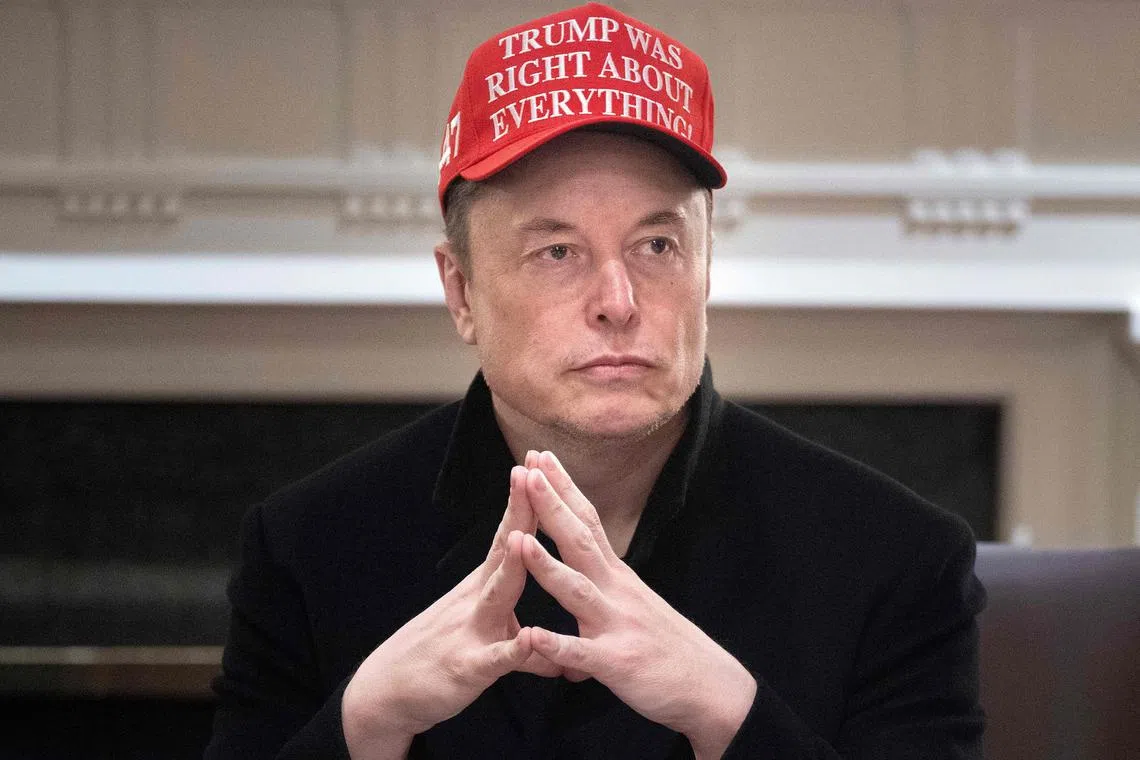Elon Musk has formally exited the Trump administration after nearly five months of one of the most unpredictable, controversial, and headline-grabbing tenures in U.S. government history. Having entered Washington as an outsider with grand ambitions to streamline bureaucracy and cut billions in federal spending, Musk leaves behind a fractured legacy at the helm of the Department of Government Efficiency (DOGE) — a position he assumed with a mandate as bold as his reputation.
In his final statement, delivered not from the Rose Garden but via his own social media platform X, Musk left a cryptic message that appeared to jab at the very president who brought him into government.
"As my scheduled time as a Special Government Employee comes to an end, I would like to thank President @realDonaldTrump for the opportunity to reduce wasteful spending," Musk wrote, before closing with a loaded line: "The @DOGE mission will only strengthen over time as it becomes a way of life throughout the government." For a man known for lacing his public statements with double meanings and coded critiques, the farewell post was widely interpreted as both a parting compliment and a veiled critique — especially given the context of the days preceding his departure.

Musk’s role was always designed to be temporary, categorized under the federal “special government employee” designation, which allows a maximum of 130 days of service per year. Based on Trump’s inauguration date of January 20, Musk was nearing that limit by late May.
Still, the timing of his exit raised eyebrows across Washington, not least because it followed sharply critical remarks he made about the Trump administration’s latest budget proposal.
Just a day before the announcement of his offboarding, Musk appeared in an interview with CBS where he blasted Trump’s prized legislative initiative. "I think a bill can be big or it could be beautiful," he said. "But I don't know if it could be both." The line, delivered with his usual ironic edge, directly undercut Trump’s branding of the budget as a “big, beautiful bill.”
Musk expressed serious concern that the massive tax breaks combined with increases in military spending would only deepen the national debt — directly opposing the mission he was brought in to execute.
Musk’s critique extended further. He claimed the bill undermined the very purpose of DOGE, the agency he had led with the goal of cutting at least $2 trillion in federal spending. That number was later revised down to $150 billion, a reflection of the political and legal headwinds Musk faced during his time in Washington. Nevertheless, an estimated 260,000 federal jobs were eliminated or vacated through redundancy agreements under his direction.

The cuts were so sweeping and abrupt that they triggered multiple legal challenges, and in several instances, federal judges intervened to reverse terminations. Among the most controversial incidents was the accidental dismissal of employees involved in sensitive operations within the U.S. nuclear program, a blunder that Musk himself admitted had been “regrettable.”
Despite the chaos and criticism, Musk’s brief governmental experiment brought measurable change. Supporters of the DOGE initiative point to significant reductions in federal procurement spending and new AI-led optimization systems deployed in several agencies.
Critics, however, argue that the cost to morale, national security, and institutional integrity was too high — and many see Musk's departure as tacit acknowledgment of that failure.
Privately, tensions between Musk and several Trump cabinet members had been brewing for months. According to multiple sources familiar with internal discussions, Musk repeatedly clashed with Trump’s Chief of Staff and Secretary of Defense over spending priorities, especially as defense appropriations ballooned under the new budget.

Despite these disputes, Trump continued to publicly praise Musk, often touting his inclusion in the administration as proof of his outsider, business-first approach.
Yet Musk’s frustrations grew. In an off-the-cuff remark to the Washington Post just before his departure, he lamented, "Doge is just becoming the whipping boy for everything. Something bad would happen anywhere, and we would get blamed for it even if we had nothing to do with it."
Those remarks came during a press conference in Texas, where Musk was preparing for a SpaceX launch — a moment that symbolized his retreat back into the world of private enterprise after the bruising months inside the Beltway.
The strain of his government role also appeared to take a toll on Musk’s corporate ventures. Tesla reported a historic 13% drop in deliveries during the first quarter of 2025, the steepest in company history. Its stock price followed suit, plunging by as much as 45% before partially rebounding.

Investor confidence was rattled, particularly after Musk announced that Tesla would not be offering a growth forecast due to "changing political sentiment" and growing consumer backlash tied to his government role. Protesters targeted Tesla dealerships and charging stations across several states, prompting U.S. Attorney General Pam Bondi to categorize some of the acts of vandalism as "domestic terrorism."
Meanwhile, Musk promised shareholders that his attention would soon return to Tesla in full. On a recent earnings call, he acknowledged that the time he had devoted to DOGE had stretched him thin and said it was time to “allocate far more of my time to Tesla.”
That message, paired with his appearance at a global economic forum in Doha, Qatar, where he reaffirmed his commitment to leading Tesla for at least five more years, was seen as a signal that his dalliance with public service was truly over — at least for now.
Financially, Musk has also indicated a withdrawal from the political battlefield. After spending close to $300 million supporting Trump’s 2024 reelection campaign and Republican candidates, he said earlier this month he plans to scale back his donations.
That move could reverberate through GOP campaign strategies, many of which had begun counting on Musk as a cornerstone donor and public ally.

For Donald Trump, the departure of Musk may prove both a political liability and a narrative opportunity. On one hand, Musk's high-profile exit and pointed criticisms could complicate the administration's efforts to present the budget bill as a universally supported masterstroke.
On the other, Trump’s team may spin the moment as a natural conclusion to a mission completed — a disruption by design.
In the end, Musk’s brief experiment with political power may come to be viewed as a cautionary tale for technocrats who believe they can easily transfer private sector success into government transformation. His exit underscores the unique complexity and resistance of Washington’s bureaucratic machinery, even for someone as daring, wealthy, and visionary as Elon Musk.
As his final X post continues to spark speculation and fuel conspiracy theories about what really went wrong behind closed doors, one thing is clear: Elon Musk’s time in the White House may be over, but the ripple effects — political, economic, and personal — are only just beginning.


-1747734794-q80.webp)
-1747889572-q80.webp)
-1742653910-q80.webp)